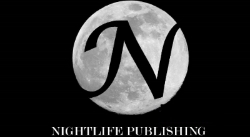“Writing ought either to be the manufacture of stories for which there is a market demand -- a business as safe and commendable as making soap or breakfast foods -- or it should be an art, which is always a search for something for which there is no market demand, something new and untried, where the values are intrinsic and have nothing to do with standardized values.” - Willa Cather
My writing has not generated much interest or discussion over the past four months. I haven’t yet figured out the proper marketing methods that will allow the eager masses hungry to read my masterpieces. But what little discussion my writing has generated has all been about my erotica. I can write about conspiracy, murder or torture and there is no ripple within my social circle. Stories about sex on the other hand, forces people to turn away in silent rejection or (I think) alter the way they see me as a writer and a person. The reaction that I’ve received has inspired me to think more about what I am writing and why in relationship to the mind of my potential audience.
The American Relationship to the Erotic
In spite of the summer flurry around Fifty Shades of Gray and the deluge of BDSM erotica that tried to ride that long tail, erotic writing is still a repressed art form in America. We are trapped between our Judeo-Christian Protestant morality and our obsession with sex as a tool of commerce and power. We willingly exploit the concept that “sex sells” but reject any insightful public discussion about seduction or sexual expression. Our collective response to sincere sexuality is avoidance, disdain, ridicule, silence or backhanded suggestions of mental imbalance.
Thankfully, the reaction to my erotica hasn’t been that aggressive but it is disconcerting to discover the people in my life conform, to one extent or another, to the same attitudes towards sexual expression as the rest of society. This makes sense. They are functioning members of the community they live in. It is understandable that they share the beliefs of that group. I had no reason to expect anything different but somehow I hoped it would be.
Controlling the Image
I don’t have illusions about the way people interact with each other. I know that each of us holds onto an image of every person in our lives. We project attributes, titles and values onto the people that we know and then assume those qualities will be fairly consistent over time. Any information that alters or upsets the image we create is resisted and rejected. If a revelation doesn’t conform to our defined social relationship then we don’t want to hear about it. By and large, most of your family, friends and co-workers don’t want to know anything about your sexual expression because it upsets their image or you and falls outside the realm of acceptable information. Writing erotica, whether it is autobiographical or not, is a revelation about your sexual expression and your sexual philosophy. That makes it a subject not to be discussed or explored. Living in this world, only a total stranger or an intimate confidant is willing to learn about you that way. No one else you know has any interest in the subject.
I’m not trying to invite everyone I know into every sexual moment of my life or warp their image of me so much that they go insane from over exposure. At the same time, my sexual expression is a large part of the definition of who I am as a person. To push that part of me away or to repress it would be rejecting a facet of my life that I’m not ashamed of. Inserting erotica into my work makes as much sense to me as including humor, wit or complexity. It is fundamental to my art and to my life. If I didn’t put it in because other people weren’t comfortable with it, then my writing wouldn’t be mine any more. My life wouldn’t be mine any more.
Pushing Boundaries through Art
Just before I started releasing my work, I read a book from Susie Bright called How to Write a Dirty Story. The book was quite good partially because it helped me see my role as a writer both in terms of erotica and in terms of other aspects of writing. Her advice, like Ms. Cather’s above, was to use my craft to push the boundaries of society and not just relax within the comfortable framework of acceptable commercial work. I have no interest in writing the most shocking, perverted or controversial book ever. Marquis de Sade already did that. My goal is much more insidious. I want to embed the erotic in other types of stories so deeply that one can’t be separated from the other. I want to construct scenes that are arousing not because of their graphic explicitly, but because of their realistic intensity. Hopefully when I’m done, the erotic elements of writing will be as engaging as the conspiracy and murder. Until then…
Have fun.
G


























